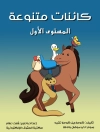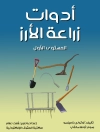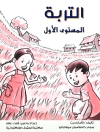Aesop’s Fables: A New Revised Version From Original Sources, presents an exquisite collection of timeless moral tales that have transcended cultures and epochs. Written in a succinct and allegorical style, these fables employ anthropomorphic characters to impart profound ethical lessons, reflecting the societal values and human behaviors of ancient Greece while remaining relevant in contemporary discourse. This revised version draws from original sources to present fables with fresh interpretations, enriching the reader’s understanding of Aesop’s narrative genius and the nuanced moral complexities embedded within each story. Aesop, often regarded as the father of the fable, was a slave and storyteller in ancient Greece whose works were likely transmitted orally before being compiled into written form. His unique position in society allowed him to critique the human condition through simple yet powerful narratives. Aesop’s life experiences fueled his creativity, enabling him to craft tales that offer wisdom on justice, morality, and the nature of humanity—issues that resonate profoundly even in today’s world. This revised edition of Aesop’s Fables is a must-read for those interested in ethics, literature, and cultural history. Its engaging narratives and valuable life lessons not only entertain but also provoke critical thought, making it an essential addition to the library of anyone seeking to explore the intricacies of human nature and morality in a vibrant storytelling format.
Tentang Penulis
Aesop, a figure enveloped in mystery, is famed for his collection ‘Aesop’s Fables: A New Revised Version From Original Sources’. Believed to have lived from around 620 to 564 BCE, Aesop’s life remains largely undocumented, with various accounts of his existence emerging from ancient Greece. Despite the uncertainties surrounding his biography, Aesop’s legacy endures through the enduring popularity of his fables. These short tales, which employ anthropomorphized animals and inanimate objects as characters, serve both as entertainment and vessels for moral education. The fables have been handed down through generations, often orally, before being compiled and translated across cultures and ages. Although Aesop’s own authorship of all the fables attributed to him is a matter of scholastic debate, his name has become synonymous with this literary style that deftly blends storytelling with ethical instruction. The fables’ timeless appeal is evidenced by their continued relevance and adaptability, offering wisdom that transcends the era they emerged from. As such, ‘Aesop’s Fables’ does not merely reflect a compendium of stories; it encapsulates a literary tradition that holds a mirror to human nature and societal norms.












